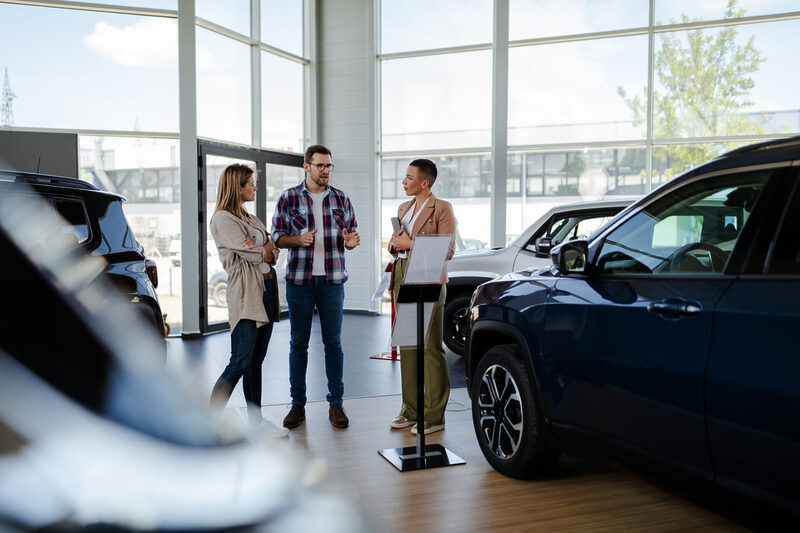
With transport responsible for almost a quarter of the UK’s CO2 emissions, it’s easy to see why there’s a push towards greener transport solutions. The UK has committed to reaching net-zero emissions by 2050, and moving away from petrol and diesel cars is a big part of that plan.
Key facts at a glance:
- Transport produces almost 25% of the UK’s CO2 emissions
- The UK aims to hit net-zero emissions by 2050, with a ban on new petrol and diesel car sales forming part of the plan
- The ban affects only the manufacture and sale of new petrol and diesel cars – used cars and classics are unaffected
- Less than 1% of UK cars are fully electric today, but interest and searches are rising
- Newer EVs offer ranges of up to 250 miles per charge
- EVs have lower routine maintenance costs thanks to fewer moving parts
- Specialist repairs for EVs can be expensive
- Drivers are advised to consider driving habits, range and long-term reliability before making the switch to electric
- Warrantywise car warranties protect petrol, diesel and electric vehicles, with added benefits like breakdown recovery and car hire
Electric cars are not new, but the industry still has progress to make before they match the convenience of traditional vehicles. So, what does the ban actually mean for drivers?

What does the petrol and diesel ban mean?
The ban targets the manufacture and sale of new petrol and diesel vehicles. Key points to know:
- No UK-wide scrappage scheme is planned
- Used petrol and diesel cars will still be allowed for sale
- Classic car enthusiasts don’t need to worry – older vehicles aren’t affected
Currently, less than 1% of cars on UK roads are fully electric. However, since the government’s announcement, online searches for electric cars have surged. While many drivers aren’t ready to switch just yet, more motorists are considering a BEV (battery electric vehicle) for their next purchase.

Why the shift to electric matters:
From climate change and melting ice caps to air pollution and public health, the reasons to move towards cleaner-running cars are clear. Experts warn that without urgent action, the environmental costs could be irreversible.
Things to consider before switching to EV:
Range anxiety
One of the biggest concerns is whether an electric car can go far enough on a single charge. The good news is:
- Newer BEVs can now travel up to 250 miles per charge
- This is well above the mileage of the average UK driver on a single journey
If you’re considering an EV, think about your driving habits and whether the available range meets your needs.
Maintenance
Electric cars generally have fewer moving parts, which means:
- Lower routine maintenance costs compared to petrol and diesel vehicles
- Less chance of common mechanical issues
However, there are important factors to keep in mind:
- The EV industry is still young, so long-term reliability still isn’t fully understood
- BEVs are more complex, meaning DIY fixes under the bonnet are a thing of the past
- You’ll rely more on specialists, which can mean higher repair bills if problems occur
This shouldn’t put you off buying an EV, the social and environmental benefits are clear. But it does highlight the importance of being prepared for the unexpected.
Protect your car with Warrantywise:
Whether you drive a petrol, diesel or electric vehicle, unexpected costs can still arise.
- We guarantee not to be beaten on price
- We have plan levels for all vehicle types, including electric
- With added benefits including emergency breakdown assistance and car hire, we take the stress out of motoring problems
The petrol and diesel car ban is a major step towards a greener future, but it doesn’t mean the end of choice for UK drivers. Whether you’re ready to go electric now or plan to wait, it’s important to understand the changes and prepare for the unexpected. With a Warrantywise car warranty, you can drive with confidence knowing that you’re protected, whatever the future holds.
Discover more.
Further Warrantywise articles you might find useful

Is it illegal to park on the pavement during a breakdown?
Recently, there have been petitions to ban pavement parking due to the danger that it can cause to pedestrians. UK … Continued

The new 70-plate registration has launched.
In the UK, vehicle number plates change twice a year – on 1st March and 1st September – and this … Continued

Drivers should have an eye test every decade, experts urge.
In the UK, all drivers must meet legal eyesight standards to stay safe on the road. If you rely on … Continued